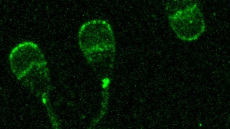Taking aspirin can significantly reduce the risk of developing - and dying from cancers of the digestive tract, new research has found.
Taking aspirin for 10 years could cut bowel cancer cases by around 35 percent and deaths by 40 percent, while rates of oesophageal and stomach cancers were cut by 30 percent and deaths from these cancers by 35-50 percent are some of the conclusions.
"While there are some side effects that can't be ignored, taking aspirin daily looks to be the most important thing we can do to reduce chances of cancer after stopping smoking and reducing obesity," stressed lead researcher Jack Cuzick, head of Queen Mary University of London's (QMUL) Centre for Cancer Prevention.
The study shows that if people aged between 50-65 started taking aspirin daily for at least 10 years, there would be a nine percent reduction in the number of cancers, strokes and heart attacks overall in men and around seven percent in women.
To reap the benefits of aspirin, people need to start taking a daily dose of 75-100 mg for at least five years and probably 10 years between ages 50 and 65.
No benefit was seen while taking aspirin for the first three years, and death rates were only reduced after five years, the study noted.
However, the research also warns taking aspirin long-term increases the risk of bleeding from the digestive tract.
Among 60-year-old individuals who take daily aspirin for 10 years, the risk of digestive tract bleeds increases from 2.2 percent to 3.6 percent.
This could be life-threatening in a very small proportion (less than 5 percent) of people, researchers claimed.
After reviewing many studies and clinical trials assessing both the benefits and harms of preventive use of aspirin, researchers reached this conclusion, the study, published in the leading cancer journal Annals of Oncology, noted.





